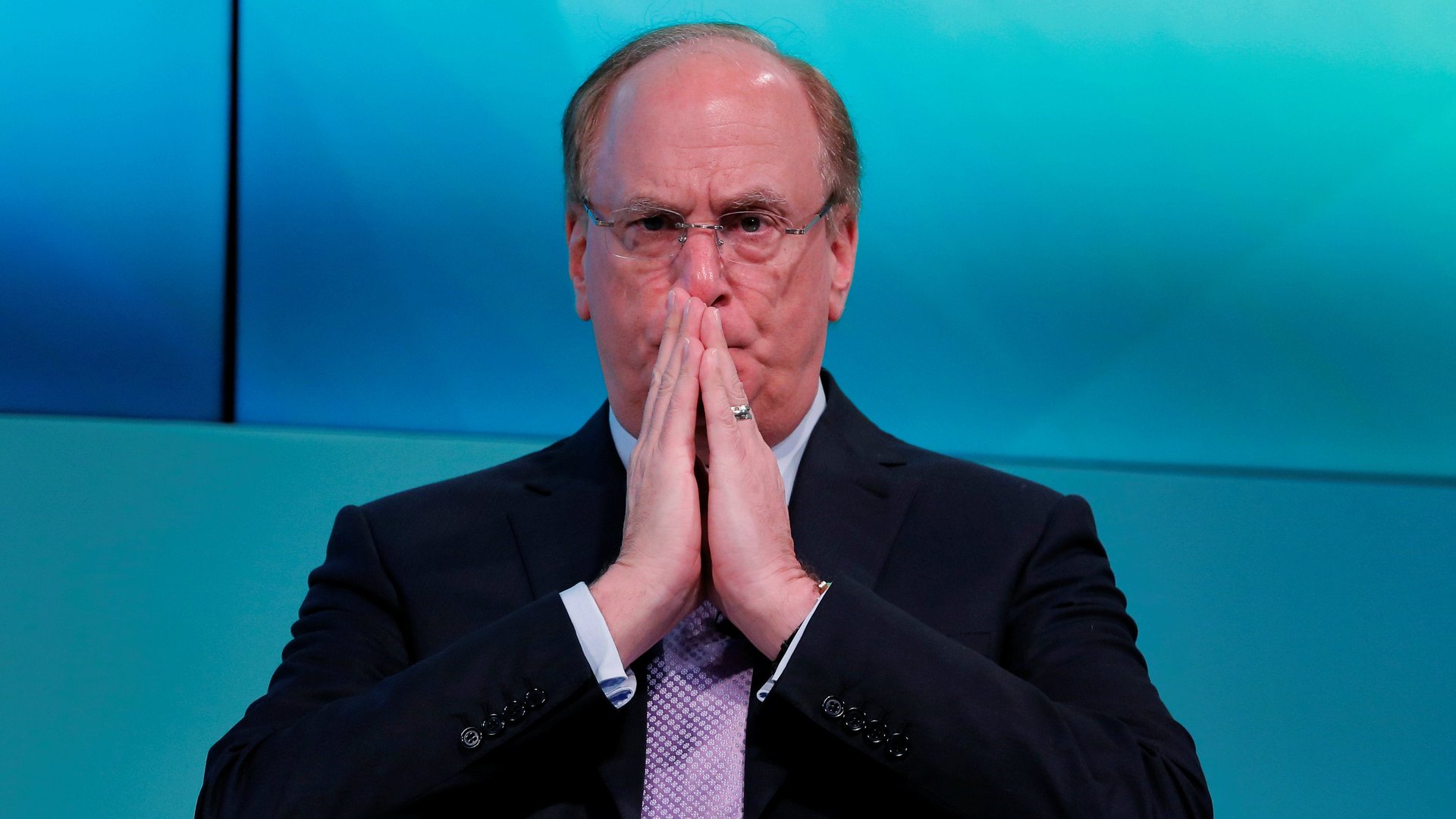Human fund managers may still control more trading than people think
Human fund managers haven’t gotten much love lately. They often fail to beat broad market indexes, but charge higher fees than funds that passively track those benchmarks. Investors have taken notice and are increasingly moving their cash into passive funds.


Human fund managers haven’t gotten much love lately. They often fail to beat broad market indexes, but charge higher fees than funds that passively track those benchmarks. Investors have taken notice and are increasingly moving their cash into passive funds.
The world’s largest asset manager says that’s not the entire story, however. Some active fund managers use passively constructed exchange-traded funds (ETFs), for example, to implement their investment ideas. BlackRock CEO Larry Fink said today (pdf) that ETFs are used “increasingly by active managers.” The company says some investors are buying and selling the securities instead of derivatives like swaps and futures, or in place of individual stocks and bonds.
Fink’s comments come amid worries that the sheer amount of money flowing into passively traded funds will distort the market. If too many active managers are sidelined, and too much money sloshes around in funds that blindly track indexes, the market could become inefficient: good companies won’t have access to enough capital and bad ones will be rewarded with too much.
The shift to passive, meanwhile, doesn’t seem to be slowing down. More than a third of all US assets are in passive-style funds, according to Bloomberg, compared with about a fifth some 10 years ago. Nearly half a trillion dollars flowed out of active funds and into passive ones during the first half of the year. (Still, at BlackRock, even though assets in active products are less than half the size of passive, they generated nearly the same amount of fees in the latest quarter, with both collecting some $1.3 billion.)
Market watchers also question whether index-tracking funds will properly monitor corporate behavior. Passive money managers may collect lots of assets but be less focused on corporate governance, the thinking goes. Active fund managers may sell a stock when it disagrees with the board’s strategies or other proposals—an option passive managers don’t have.
There are signs that major index compilers are taking the concerns seriously and reviewing their standards accordingly. The same may also be true for passive money managers: according to Barron’s, the biggest fund managers have beefed up their teams that engage with company boards, despite their hands-off approach to other aspects of their investing strategy.